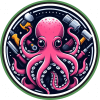With the support of the WILDLABS Awards and Arm, we are about to launch Trapper Keeper, an open-source, AI-powered infrastructure for next-generation camera trap data management. This is a collaboration between Open Science Conservation Fund (@kbubnicki, @Kamalama997 , @icorei), BearID Project (@bluevalhalla , @marynguyen , @mclapham ), Universidad San Francisco de Quito (@rebeccazug , @driofrio ), and San Diego Zoo Wildlife Alliance (@tkswanson , @russvanhorn ).
This project will address the needs of a wide range of research and conservation actors — from small, remote labs with limited connectivity to large NGOs, research institutions, and independent conservationists. Built upon the foundation of our existing #TRAPPER 2.0 BETA, we will develop a robust, scalable system that offers both portable, pre-configured field servers and containerized deployments for in-house use. Trapper Keeper will empower users to efficiently manage, process, and share biodiversity data — even in low-resource settings — and connect local monitoring efforts with global biodiversity infrastructure.
Project Objectives Over the course of the project, we will:
- Release a stable, open-source TRAPPER 2.0 platform suitable for both small and large-scale camera trap projects.
- Improve usability and accessibility by simplifying deployment (automated setup, Docker containers), enhancing workflows (upload, AI processing, export), and designing interfaces for both experts and citizen scientists.
- Provide comprehensive support resources, including clear documentation and video tutorials, to broaden user adoption.
- Develop and test portable servers, using Raspberry Pi 5 with AI HAT+ and NVIDIA Jetson, enclosed in rugged field-ready casings.
- Deploy scalable solutions on energy-efficient Arm-based Ampere servers for larger projects.
- Integrate AI species classifiers and video analysis tools, including models from SDZWA and BearID, into the TRAPPER platform.
- Enable seamless publishing of standardized Camtrap DP () datasets to GBIF via the Integrated Publishing Toolkit.
Conduct real-world usability testing with diverse partners, including USFQ (Ecuador), Nanwakolas First Nations (Canada), Open Science Conservation Fund and Mammal Research Institute (Poland), and Guaquira Reserve (Venezuela).
2 June 2025 10:24pm






Russ Van Horn
San Diego Zoo Wildlife Alliance